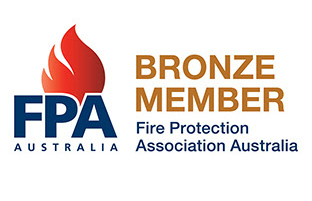BLOG
June 18, 2025
When it comes to fire safety, fire extinguishers are one of the most critical tools in preventing small fires from escalating into dangerous situations. A well-maintained fire extinguisher can save lives, protect property, and prevent significant damage. However, just like any piece of equipment, fire extinguishers are susceptible to wear and tear over time. If not regularly serviced, a faulty fire extinguisher could fail when you need it most, compromising safety. In this blog, we’ll explore the most common problems with fire extinguishers—such as leakage, low pressure, and expired units—and discuss how regular fire extinguisher servicing can resolve these issues, ensuring your fire extinguisher is always ready to perform in an emergency.
Fire extinguishers are designed to save lives and protect property, but only if they are in proper working order. Fire extinguishers are no good in an emergency if they are damaged, expired, or not maintained regularly. Without proper servicing, even the best-quality fire extinguishers can fall into disrepair. Ensuring that your fire extinguisher is serviced regularly can extend its lifespan, maintain its effectiveness, and keep you safe in the event of a fire.
One of the most common problems with fire extinguishers is leakage. Over time, the seals and valves on a fire extinguisher can degrade, which allows pressure or extinguishing agents to escape. A leaking fire extinguisher is a serious problem because, when the time comes to use it, it may have lost much of its pressure, rendering it ineffective.
Leaks can happen in many ways, such as:
Solution: Professional fire extinguisher servicing includes a thorough inspection of the seals and valves. Technicians check for any signs of leakage and replace the seals or valves if necessary. If a leak is detected, they will either repair the component or replace the extinguisher to ensure it remains fully operational.
Low pressure is one of the leading causes of fire extinguisher failure. Every fire extinguisher comes with a pressure gauge to indicate whether it is ready for use. A fully charged fire extinguisher will show green on the gauge. If the pressure drops below the recommended level, the extinguisher is effectively useless.
Low pressure can result from:
Solution: During regular servicing, professionals will check the pressure gauge to ensure that the extinguisher is pressurised to the correct level. If the pressure is found to be low, the technician will recharge the extinguisher to ensure it is ready for use in case of an emergency.
Fire extinguishers are not designed to last forever. Over time, the chemicals inside the extinguisher can become ineffective, and the internal components may degrade. If an extinguisher is past its expiration date, it may not perform as expected when you need it.
Solution: The expiry date of fire extinguishers is typically printed on the label or embossed onto the cylinder. A fire extinguisher should be replaced after it has passed its expiry date. During a professional servicing, the technician will check the extinguisher’s expiry date and replace any expired units to ensure that they meet the necessary regulatory standards. Regular servicing helps keep track of the expiry dates of all fire extinguishers, ensuring that none are overlooked.
Corrosion is a problem, particularly in areas with high humidity, salt air, or harsh conditions. Corrosion weakens the metal body of the extinguisher, making it more likely to rupture or fail when pressure is applied. Damage can also result from impact or misuse, which can compromise the integrity of the extinguisher.
Corrosion or physical damage can lead to:
Solution: Professional servicing includes inspecting the cylinder for signs of corrosion or physical damage. If any corrosion or damage is found, the technician will replace the extinguisher. Regular servicing ensures that any corrosion is detected early, preventing the risk of catastrophic failure.
Fire extinguishers are often tampered with or discharged accidentally. It may happen during maintenance or when employees mistakenly remove the safety pin. Discharge can also occur if the extinguisher is knocked over or dropped.
Solution: During servicing, fire extinguisher technicians inspect the extinguisher for signs of tampering or accidental discharge. If the extinguisher has been accidentally discharged, they will recharge it and ensure that it is ready for use. Regular servicing also helps ensure that the safety features, such as the safety pin, are intact and functioning properly.
In Australia, fire extinguishers are legally required to be serviced every six months, in accordance with Australian Standards AS1851-2012. This standard ensures that fire extinguishers are properly maintained and compliant with safety regulations.
Some businesses or environments may require more frequent servicing depending on risk factors such as:
It’s important to work with a professional fire extinguisher service provider to ensure that all necessary checks and maintenance are completed properly. The servicing process includes:
In addition to fire extinguisher servicing, Brisbane Fire Services offers several other services to ensure that your premises are fully protected against the risks of fire. These services include:
In conclusion, regular fire extinguisher servicing is crucial to ensuring that your equipment will work effectively in the event of an emergency. From detecting leaks and repairing low pressure to replacing expired units, professional servicing helps maintain the reliability and safety of your fire extinguishers. Don’t wait until it’s too late—schedule a fire extinguisher service today to ensure that your fire safety equipment is in perfect working condition.
Ready to make sure your fire extinguishers are always ready to protect you? Contact us now to schedule your fire extinguisher service!

Services
Quick Links
Contact Us